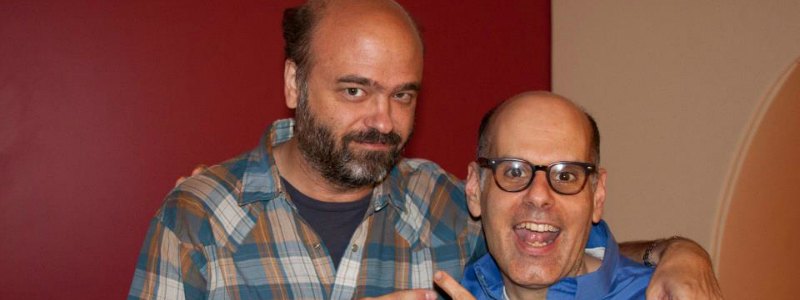How Improv Helps You Take Risks

My daughter Betsy is having a hard time making friends in Kindergarten. At recess on the playground, she gets scared and shuts down, and instead of talking to the other kids, she just follows them around like a lost puppy. What happens is they either ignore her completely or they get annoyed.
As a dad, my heart breaks for her.
I asked her what she was so afraid when she is around the other kids, and she said, "I don't want to ruin what the other kids are playing. I don't want to make a mistake."
As an improviser, I can relate.
I cannot tell you how many times I have had the same thought Betsy has when I’m on stage improvising. I’ll think, "I don't want to ruin the scene,” so I do nothing.
I wish I could tell you I was completely over it, but I still struggle with it. However, I would say I am 82% better of being able to participate in a scene than I was when I started out.
See, at my core, I am a very risk averse person, which is funny because I chose improv as a career. Maybe I chose it as a way to work out my fear, which would make perfect sense. I believe improv is not therapy, yet it can be therapeutic. It can heal us without out us even knowing it.
I had no idea when I first started out how scared I was of taking risks. All I knew was I loved doing this thing called improv and wanted to get better.
In improv you cannot avoid taking risks and get better at the same time, and I was slowly getting better at both, but I didn't even realized the progress I was making until it was pointed out to me.
I remember a few years ago I interviewed Scott Adsit for my podocast, Improv Nerd. Scott and I had gone to Columbia College in Chicago where we had taken a couple of improv classes together. Scott was great at improv, even back in his twenties. Me, not so much. Back then, doing a scene with me was like improvising with a log.
During the interview, Scott paid me a compliment about how good I had gotten at improv since we had been at Columbia together. I am glad someone had noticed my progress, because I hadn't.
Thinking of Betsy's situation, I kind of have to laugh, because maybe the thing that would help her the most would be as simple as getting her into an improv class. It worked for me.
The school guidance counselor suggested that we try to do some role playing with her so she could practice what she might say to the kids on the playground, kind of like practicing doing a two-person scene, but so far she’s wanted nothing to do with it, at least from me.
That’s where the frustration lies. I teach improv, yet I cannot help my daughter. (She is pretty strong willed, which she also gets from her dad.) Here’s hoping she makes it to some kind of improv class sooner rather than later.


I hope so to Jimmy! Improv changed my life and I know it may have had a positive effect on some of my students. See there I am doubting myself again.
You make such a great point! Improv is all about taking risks. I see my students and myself get more comfortable with those measured risks in scenes when we all realize that we are all playing by the same rules and we want the same things. Once we realize our scene partner wants to lift us up and we want to lift them up, it's a much safer environment. Somehow I manage to fall off the monkey bars now and again. Good luck on the playground!